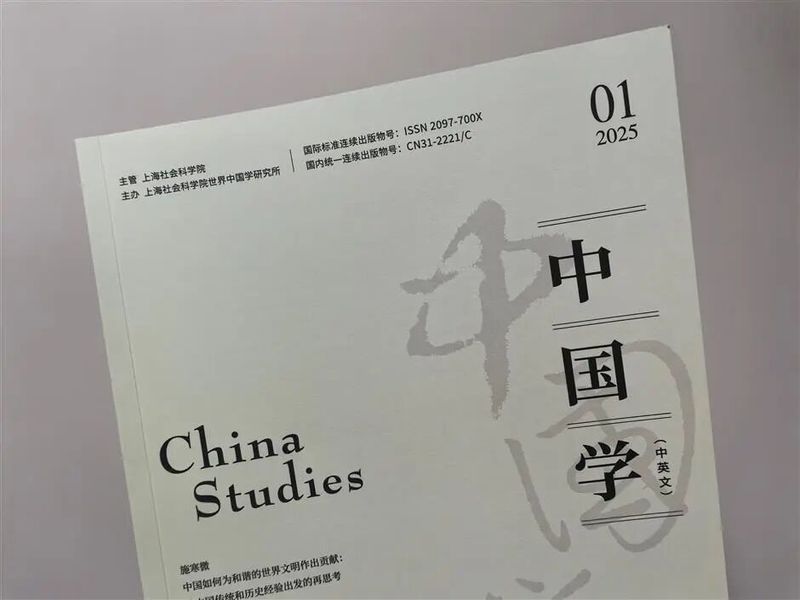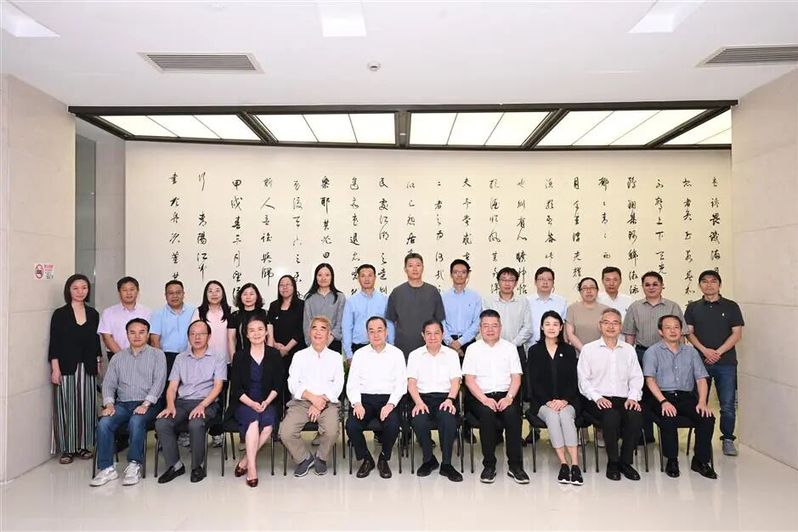发布时间:2025-09-29 浏览次数:10
以下文章来源于Shanghai Daily

The inaugural issue of China Studies
A new academic quarterly titled China Studies was launched on Friday, aiming at providing a new platform to China Studies in the global context.
The journal's inaugural issue was released during a forum focused on cross-civilization exchange and the global development of China studies.
Edited by the Institute of China Studies, Shanghai Academy of Social Sciences, it will be published quarterly in both Chinese and English.
As an academic journal for the World Conference on China Studies to be held later this year, the launch of this journal would be a milestone in the development of China Studies, marking a significant enrichment to the lineup of journals in the fields of social sciences, said Shen Guilong, president of Institute of China Studies.

Panelists attend a forum on cross-civilization exchange and the global development of China studies.
Shen emphasized that amid the steady rise of China's comprehensive strength and global influence, China studies has emerged as a vital academic field, defined by a surge in research and its evolution into a multidisciplinary discipline requiring a global lens.
The journal will offer a fresh, high-caliber platform for scholarship on Chinese civilization and China's development path from an international viewpoint, he said.
And by fostering cross-civilizational exchange and mutual learning, it represents a new step forward in academic innovation, Shen added.
Such sentiment was echoed by fellow panelists, including Zhang Xiping, a professor at both Beijing Language and Culture University and Beijing Foreign Studies University.
Zhang believes this new publication would give major impetus to China studies both in and outside China, for currently there has been no other publication that covers the study of China from both a historical and modern perspective, and is accessible to both Chinese and overseas researchers.
As editor of a China Studies journal focused on historical research, Zhang highlighted the publication's inclusive approach.
This kind of integration, grounded in rigorous academia, will help the world gain a better understanding of modern, developing China, said Zhang.
You cannot properly grasp modern China without deep knowledge of its past. Unlike many civilizations, Chinese civilization is a unique entity that remains uninterrupted for over 5,000 years, Zhang said.
Zhang also cited the need to learn from European sinologists, who have been dedicated to the field for over four centuries.
For example, the French sinologist Paul Pelliot (1878-1945) had conducted extensive research on historical documents from Dunhuang, but a lion's portion of his findings remain unavailable in the Chinese language. So how to deepen our understanding of Western studies on traditional China remains a formidable task, Zhang said.
Zhang also mentioned Rabban bar Sauma, a Nestorian Christian cleric raised in what is now Beijing. As a Yuan Dynasty envoy, his travels across Western Europe offered invaluable insights into that era – but he remains largely unknown in China, as most records about him are in Syriac.
These gaps, he said, underscore why a global perspective on China Studies is essential.
Promoting China studies from a global perspective would help us better understand and connect with the rest of the world, said Zhang.